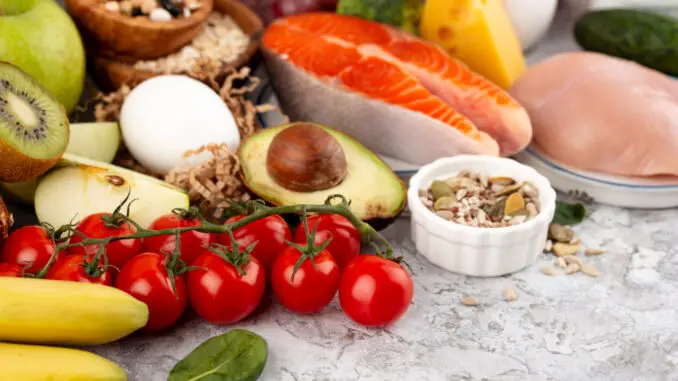
For individuals with gallbladder issues or those looking to support gallbladder health, following a specific diet can help manage symptoms and reduce the risk of gallstone formation. Here are some general dos and don’ts for a gallbladder-friendly diet:
Foods to Eat:
- High-fiber foods: Incorporate plenty of fruits, vegetables, and whole grains into your diet. Fiber helps regulate digestion and may prevent constipation, which can contribute to gallstone formation.
- Healthy fats: Choose sources of healthy fats such as avocados, olive oil, nuts, and seeds. These fats are easier for the body to digest and are less likely to trigger gallbladder symptoms compared to saturated and trans fats.
- Lean proteins: Opt for lean sources of protein, including chicken, turkey, fish, and legumes. Limit red meat and high-fat dairy products, which can be harder to digest and may exacerbate gallbladder symptoms.
- Low-fat dairy: Choose low-fat or fat-free dairy products such as yogurt, milk, and cheese. These options provide essential nutrients without the added fat content.
- Fluids: Stay hydrated by drinking plenty of water throughout the day. Water helps maintain healthy bile production and keeps the digestive system functioning properly.
- Herbal teas: Some herbal teas, such as peppermint or chamomile tea, may help soothe digestive discomfort and support gallbladder health.
Foods to Avoid:
- High-fat foods: Limit or avoid foods high in saturated and trans fats, such as fried foods, fatty meats, processed snacks, and rich desserts. These foods can trigger gallbladder symptoms and contribute to gallstone formation.
- Processed foods: Minimize intake of processed foods, including packaged snacks, fast food, and convenience meals. These foods often contain unhealthy fats, additives, and preservatives that can irritate the digestive system.
- High-cholesterol foods: Reduce consumption of high-cholesterol foods, such as egg yolks, organ meats, and shellfish. High cholesterol levels in the bile can increase the risk of gallstone formation.
- Spicy foods: For some individuals, spicy foods may exacerbate gallbladder symptoms such as abdominal pain and indigestion. Monitor your tolerance to spicy foods and avoid them if they trigger discomfort.
- Gas-producing foods: Certain foods, such as beans, cabbage, onions, and carbonated beverages, can cause gas and bloating, which may worsen gallbladder symptoms.
- Rapid weight loss diets: Avoid crash diets or rapid weight loss programs, as they can increase the risk of gallstone formation. Aim for gradual, sustainable weight loss through healthy eating and regular physical activity.
By following a balanced diet rich in fiber, healthy fats, and lean proteins, while avoiding trigger foods that can exacerbate gallbladder symptoms, you can support gallbladder health and reduce the risk of complications associated with gallbladder issues. However, it’s essential to consult with a healthcare professional or registered dietitian for personalized dietary recommendations based on your specific health needs and medical history.


Before you go and replace your ceiling fan remote, let us help you.
We have troubleshooting guides to assist site visitors with
diagnosing the problem with the remote, before replacing it.
There are some general troubleshooting steps, like checking the batteries, checking the dip switches and determining what is the problem before going the route of replacement.
If you do choose to replace the ceiling fan remote, replacing the receiver and the remote at the same time is often a good idea.
Many universal ceiling fan kits come with a replacement receiver.
Excellent blog here Also your website loads up very fast What web host are you using Can I get your affiliate link to your host I wish my web site loaded up as quickly as yours lol
I’m grateful. I have been searching for information about this topic for a while, and yours is the best that I have discovered thus far. However, what about the revenue? Regarding the supply, are you sure?
I have been surfing online more than 3 hours today yet I never found any interesting article like yours It is pretty worth enough for me In my opinion if all web owners and bloggers made good content as you did the web will be much more useful than ever before
Its like you read my mind You appear to know so much about this like you wrote the book in it or something I think that you can do with a few pics to drive the message home a little bit but other than that this is fantastic blog A great read Ill certainly be back
I am not sure where youre getting your info but good topic I needs to spend some time learning much more or understanding more Thanks for magnificent info I was looking for this information for my mission
certainly like your website but you need to take a look at the spelling on quite a few of your posts Many of them are rife with spelling problems and I find it very troublesome to inform the reality nevertheless I will definitely come back again
Have you ever thought about creating an ebook or guest authoring on other websites?
I have a blog centered on the same subjects you discuss
and would love to have you share some stories/information. I know my audience would value your
work. If you are even remotely interested,
feel free to shoot me an email.
My developer is trying to persuade me to move to .net from PHP.
I have always disliked the idea because of the expenses.
But he’s tryiong none the less. I’ve been using WordPress on numerous websites
for about a year and am concerned about switching to another platform.
I have heard fantastic things about blogengine.net. Is there a way I can transfer all my wordpress content into it?
Any kind of help would be really appreciated!